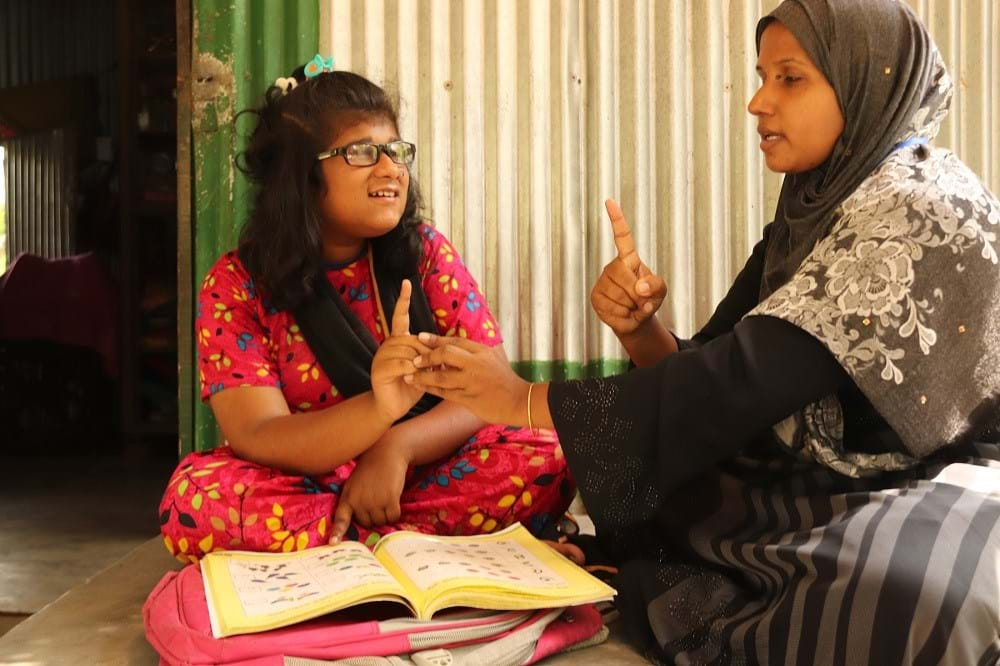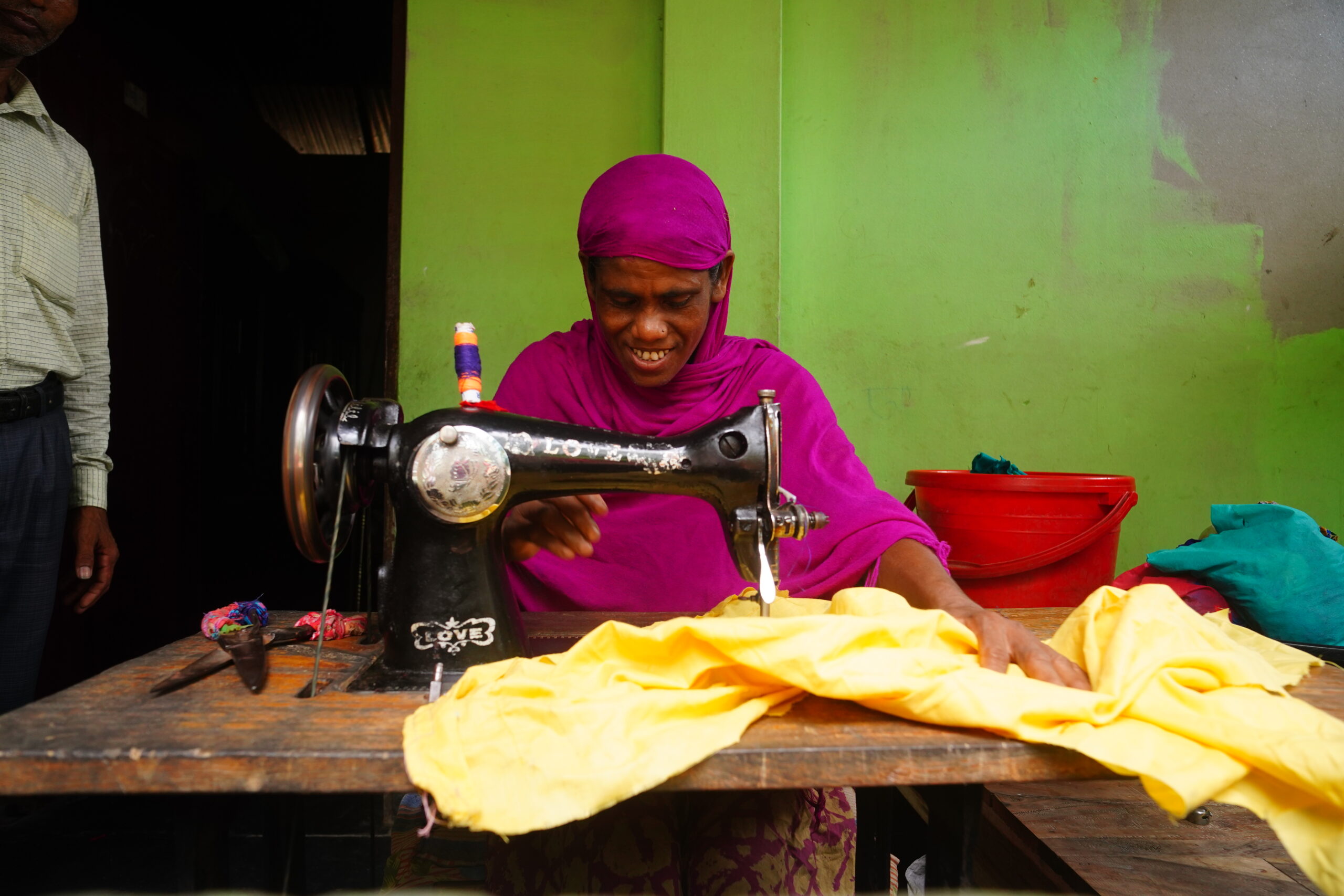Our work in Bangladesh
Sense International is working in Bangladesh with national partner Centre for Disability in Development (CDD) to implement the country’s first ever programme for children with deafblindness.

Given the stigma associated with disability, families of children with deafblindness in Bangladesh are often rejected by their communities. With little or no support, young people with deafblindness grow up in extreme isolation and miss out on the chance to fulfil their potential.
We are ensuring that children with deafblindness receive an education. We provide Special Educators to support children with deafblindness to build the skills and competencies that will enable them to attend school. We also train teachers to make suitable adaptations in the classroom for students with deafblindness, and help schools to create an inclusive learning environment.
We are supporting young people with deafblindness to access lifelong learning opportunities. We provide training for young adults with deafblindness and help them to start up their own small businesses. Income generating activities may include working in a grocery shop, tailoring using a sewing machine, shoe repair, poultry-rearing and printing.
In Bangladesh, it is estimated that almost 66,000 people live with deafblindness.*
We are gathering evidence from our work to demonstrate how young people with deafblindness can be included in education and skills training. By sharing our learning, we hope to influence the government to make reforms within the education system so that it becomes more accessible to students with deafblindness and other disabilities.
We are raising awareness of deafblindness and helping people with deafblindness to realise their rights. Our initial work led to the recognition of deafblindness as a unique disability within the Disability Rights and Protection Act 2013. Since then, we have supported people with deafblindness to access the social security benefits to which they are entitled, and to advocate for their rights.
 Vocational training, Bangladesh
15 young adults
Vocational training, Bangladesh
15 young adults
with deafblindness gained vocational skills to find work or establish a livelihood last year.
 Inclusive education, Bangladesh
157 children
Inclusive education, Bangladesh
157 children
with deafblindness were supported to receive an education last year.
* These figures are calculated using a prevalence rate of 0.04% developed by Sense International India on the basis of evidence gained through their work in the region.
You can read more about deafblindness prevalence data here.

